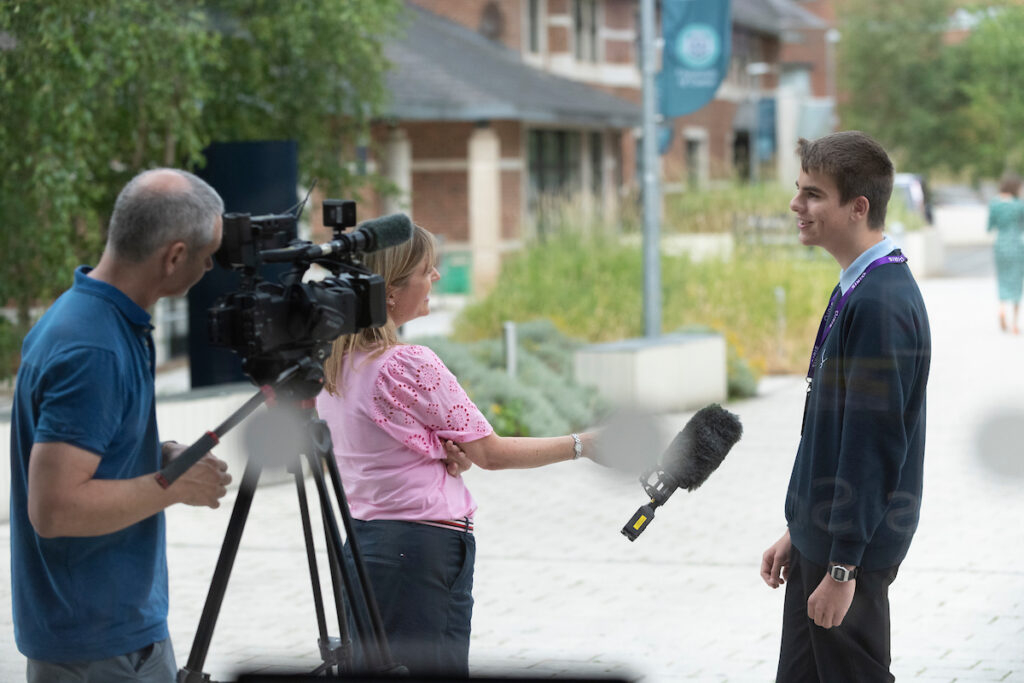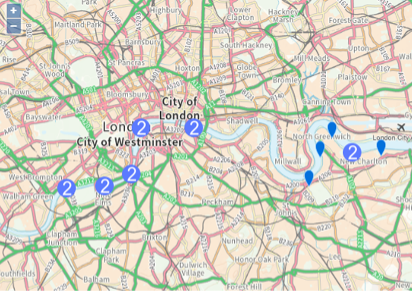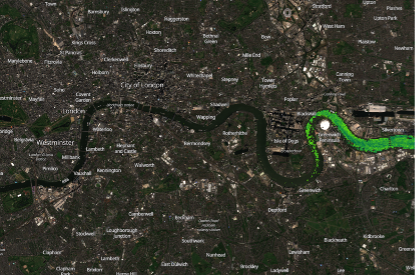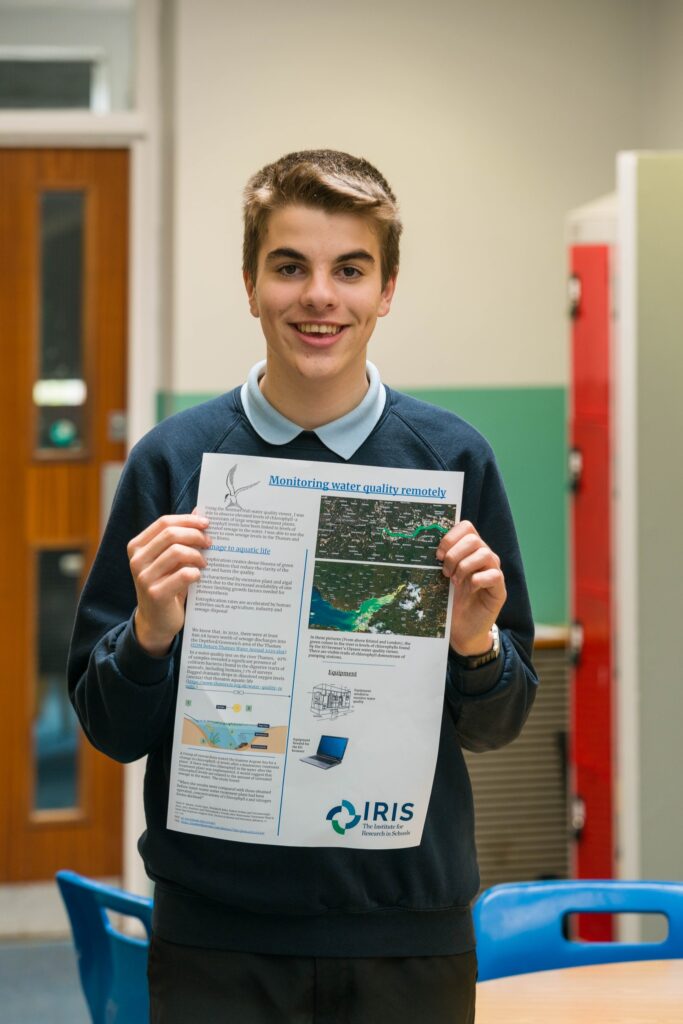
Tracking sewage from space:
Cornish student highlights pollution problem
20 June 2023 – A 13-year-old school pupil from Cornwall is using satellite imagery to track sewage discharges in UK rivers.
Arthur Foster, a pupil at Mullion School in Cornwall, has adapted existing satellite image feeds to monitor sewage pollution as part of the IRIS Earth Observation project.
Spotting sewage from space helps to reveal the true scale of pollution levels in UK waterways. Using near real-time satellite imagery also shows that sampling stations are often not monitoring the full extent of sewage discharges because they are in fixed locations whereas the data from satellites gives a ‘star’s eye’ view of the nation’s rivers and waterways.
Arthur’s ingenious approach to tracking sewage in our waters should be another powerful tool in the campaign for clean rivers and seas.
Tracking sewage in our waters could be used to decrease levels of pollution in areas without sophisticated water quality monitoring and inform regulators who could use this programme to decide whether or not to allow water companies to discharge raw sewage into rivers.
Arthur has developed his water quality monitoring programme using satellite imagery that’s free to access and easy to operate. He hopes that he can inspire others to also become ‘satellite sewage spotters’ which could lead to a national people-powered monitoring network adding data and information to the current debate around sewage discharges and enforcement.
The images below show the locations of sampling stations taken from https://environment.data.gov.uk/ and then levels of pollution as seen by satellite imagery.
 This image shows the locations of sampling stations (blue dots)
This image shows the locations of sampling stations (blue dots) This image shows pollution as seen by satellite imagery (green)
This image shows pollution as seen by satellite imagery (green)Arthur said: “I wanted to find a way to track pollution so that people could see what was really happening to our rivers and by using satellites we get a really good view of the whole national network of waterways. Spotting sewage from space makes it easier to identify the times and places where discharges should be banned to avoid rivers already showing high levels of pollution.”
Arthur used Sentinel Hub to access satellite imagery of UK rivers. He then applied a filter to track water quality in a new application of the technology. The imagery shows the amount of chlorophyll in the water, which is a measure of the amount of algae in the water. Algae can grow rapidly in polluted water, and it can cause the water to become green and murky.
This satellite sewage watch capability has potentially far-reaching implications for environmental enforcement and for assessing the actual scale of discharged sewage in UK waterways.
Arthur showcased his research in Exeter as part of the annual IRIS student conferences which took place in June.
This opportunity for pupils to carry out their own investigations is a fantastic way of introducing young minds to the wonder of science and to help them feel that they have agency in their futures.
Dr Marieke Royle, a teacher at Mullion School said: “Arthur has found a really simple and elegant method to enable dynamic monitoring of water quality, which has great potential. Giving students the opportunity to ask their own questions and investigate them is invaluable and highly rewarding both for students and teachers. IRIS has made it possible for pupils to access satellite data, which gives pupils the chance to learn how to interpret data and apply their findings.
“This research is also very empowering, as it offers a pupil-driven solution to a significant environmental problem. We need inquiring minds and problem-solving young scientists if we are to tackle the significant environmental challenges of the future. This opportunity for pupils to carry out their own investigations is a fantastic way of introducing young minds to the wonder of science and to help them feel that they have agency in their futures.”
 Arthur with his sewage monitoring research poster
Arthur with his sewage monitoring research posterArthur’s discovery has won praise from the environmental campaign group Surfers Against Sewage who said: “The fight to end sewage pollution requires a crystal clear view of the true extent of the problem. Arthur’s ingenious approach to tracking sewage in our waters should be another powerful tool in the campaign for clean rivers and seas and we can’t praise him enough for this incredible innovation. Arthur is a true Ocean Activist, taking actions to help protect our waters.”
Read more about Arthur’s research on the BBC, Pupil praised for sewage tracking innovation and see Arthur’s poster for yourself, How satellites can help us clean up rivers.
Get your students involved with monitoring sewage and taking action against pollution by signing up for our Earth Observation project.